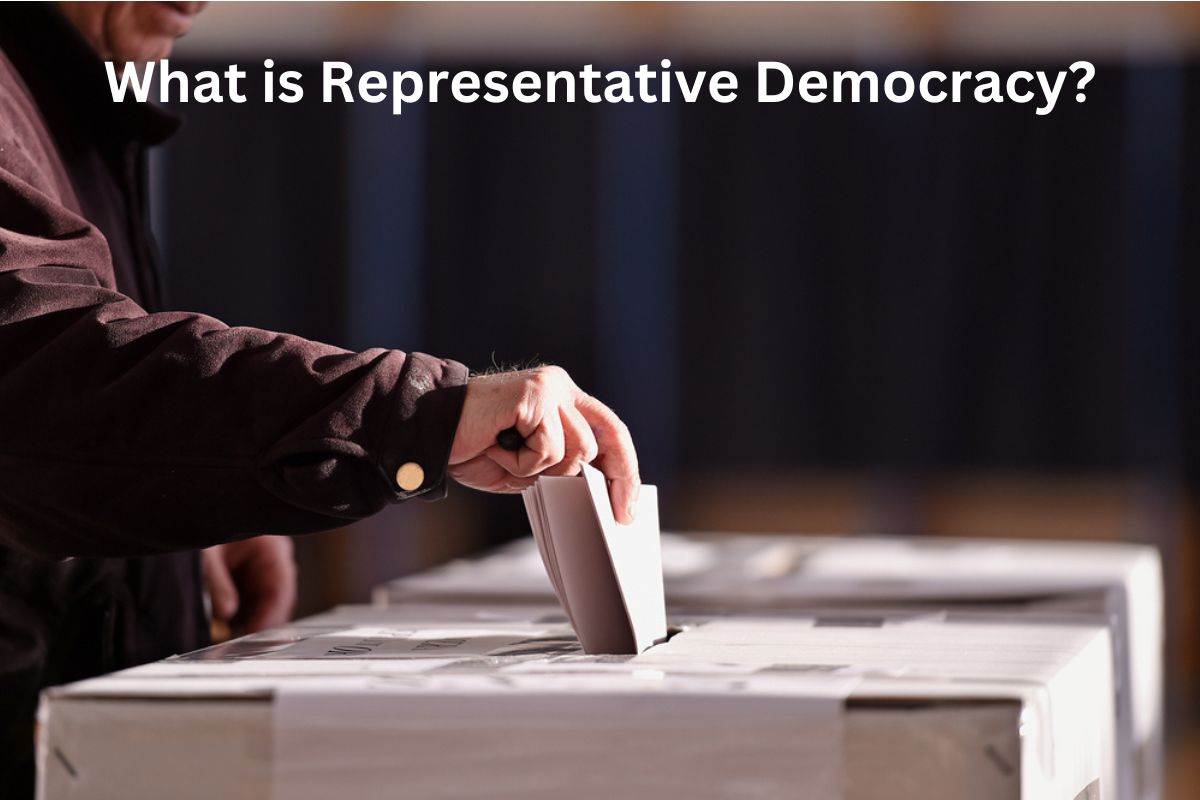Representative democracy is a form of government in which elected officials represent the people and make decisions on their behalf. It is a system of governance that has been embraced by many nations around the world.
Understanding representative democracy is important because it provides insight into how governments work, how decisions are made, and how citizens can participate in the political process.
In this article, we will explore the key features of representative democracy, its history, and the pros and cons of this form of governance.
What is Representative Democracy?
Representative democracy, also called “indirect democracy,” is a type of democracy in which elected people serve a group of people. This is different from “direct democracy,” in which people vote directly for leaders.
Key Features of Representative Democracy
Representative democracy is a form of government in which citizens elect representatives to make decisions on their behalf. These elected officials are responsible for representing the interests and concerns of their constituents and making decisions that are in the best interest of the people they represent.
1. Concept of elected representatives
The concept of elected representatives is a key feature of representative democracy. Citizens have the right to vote for the person they want to represent them, and these elected officials are then responsible for making decisions on their behalf. This system ensures that every citizen has an equal say in the decisions made by the government.
2. Principle of popular sovereignty
Representative democracy is based on the principle of popular sovereignty, which means that the power of the government comes from the people. This principle ensures that the government is accountable to the people and that citizens have the power to participate in the political process.
3. Importance of the rule of law
The rule of law is a fundamental principle of representative democracy. It ensures that everyone, including elected officials, is subject to the law and that the law is enforced fairly and consistently. This principle ensures that everyone is treated equally under the law and that no one is above the law.
Overall, the key features of representative democracy include the concept of elected representatives, the principle of popular sovereignty, and the importance of the rule of law. These features ensure that citizens have a voice in their government and that the government is accountable to the people.
The History of Representative Democracy
The concept of democracy can be traced back to ancient Greece, where citizens participated in the political process through direct democracy. However, the modern concept of representative democracy developed during the Age of Enlightenment in Europe.
Representative democracy developed in Europe as a response to the limitations of direct democracy. In England, the Magna Carta in 1215 established the principle of limited government, while the Glorious Revolution of 1688 led to the adoption of a constitutional monarchy.
The French Revolution of 1789 led to the establishment of a representative democracy in France, and this model was later adopted by other European countries.
Representative democracy spread worldwide in the 20th century, largely as a result of decolonization and the collapse of communist regimes. Today, most countries have some form of representative democracy, although the extent to which citizens are able to participate in the political process varies greatly.
Overall, the history of representative democracy is one of evolution and adaptation. From its origins in ancient Greece to its development in Europe and its spread worldwide, representative democracy has evolved over time to meet the needs and challenges of different societies.
The Pros and Cons of Representative Democracy
Advantages of representative democracy:
- Representation: The use of elected representatives ensures that citizens are represented in the decision-making process.
- Stability: Representative democracy provides stability and continuity in government, as elected officials serve for a fixed term.
- Protection of minority rights: Representative democracy protects the rights of minorities by ensuring that decisions are made by elected representatives rather than by the majority.
- Accountability: Elected officials are accountable to the people, as they must seek re-election periodically.
Disadvantages of representative democracy:
- Lack of direct participation: Representative democracy can lead to a lack of direct participation by citizens in the political process.
- Corruption: Elected officials may be susceptible to corruption or influenced by special interest groups.
- Tyranny of the majority: In some cases, the majority may use their power to oppress minority groups.
- Inequality: Representative democracy may perpetuate existing social and economic inequalities.
Overall, while representative democracy has many advantages, it also has its disadvantages. It is important to address these disadvantages in order to ensure that representative democracy remains a viable and effective form of government.
Conclusion
Representative democracy is a form of government in which citizens elect representatives to make decisions on their behalf. It is a system of governance that has evolved over time, from its origins in ancient Greece to its development in Europe and its spread worldwide.
Representative democracy has many advantages, such as ensuring representation and stability in government, but it also has its disadvantages, such as a lack of direct participation and the potential for corruption.
Despite these disadvantages, representative democracy remains a viable and effective form of government when properly implemented and when efforts are made to address its limitations. As citizens, it is important to remain engaged and informed about the political process and to hold elected officials accountable for their actions.
